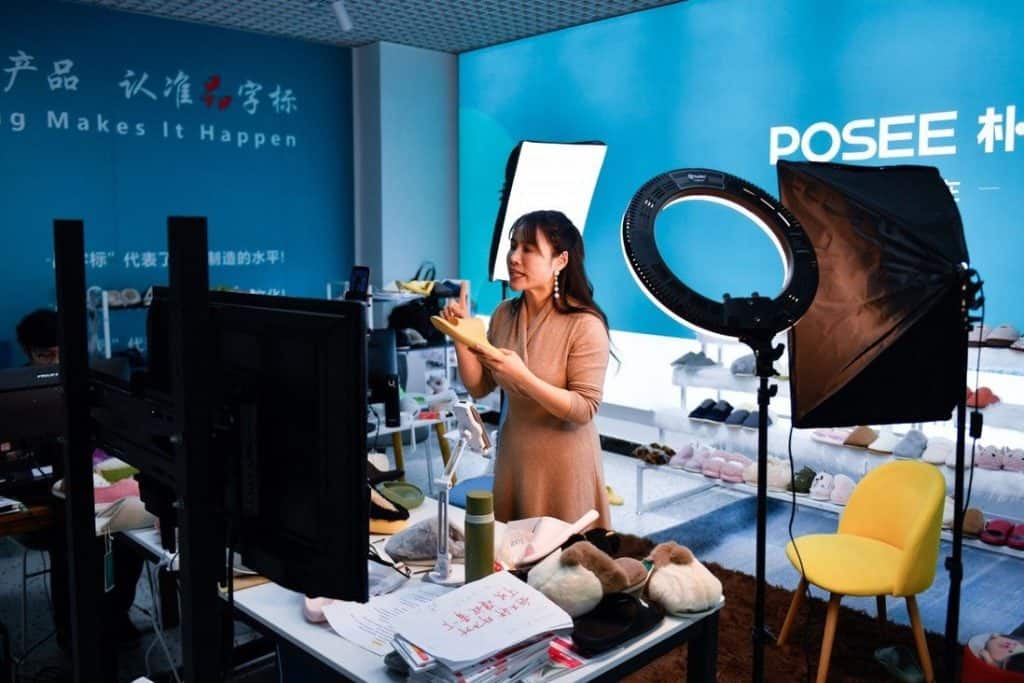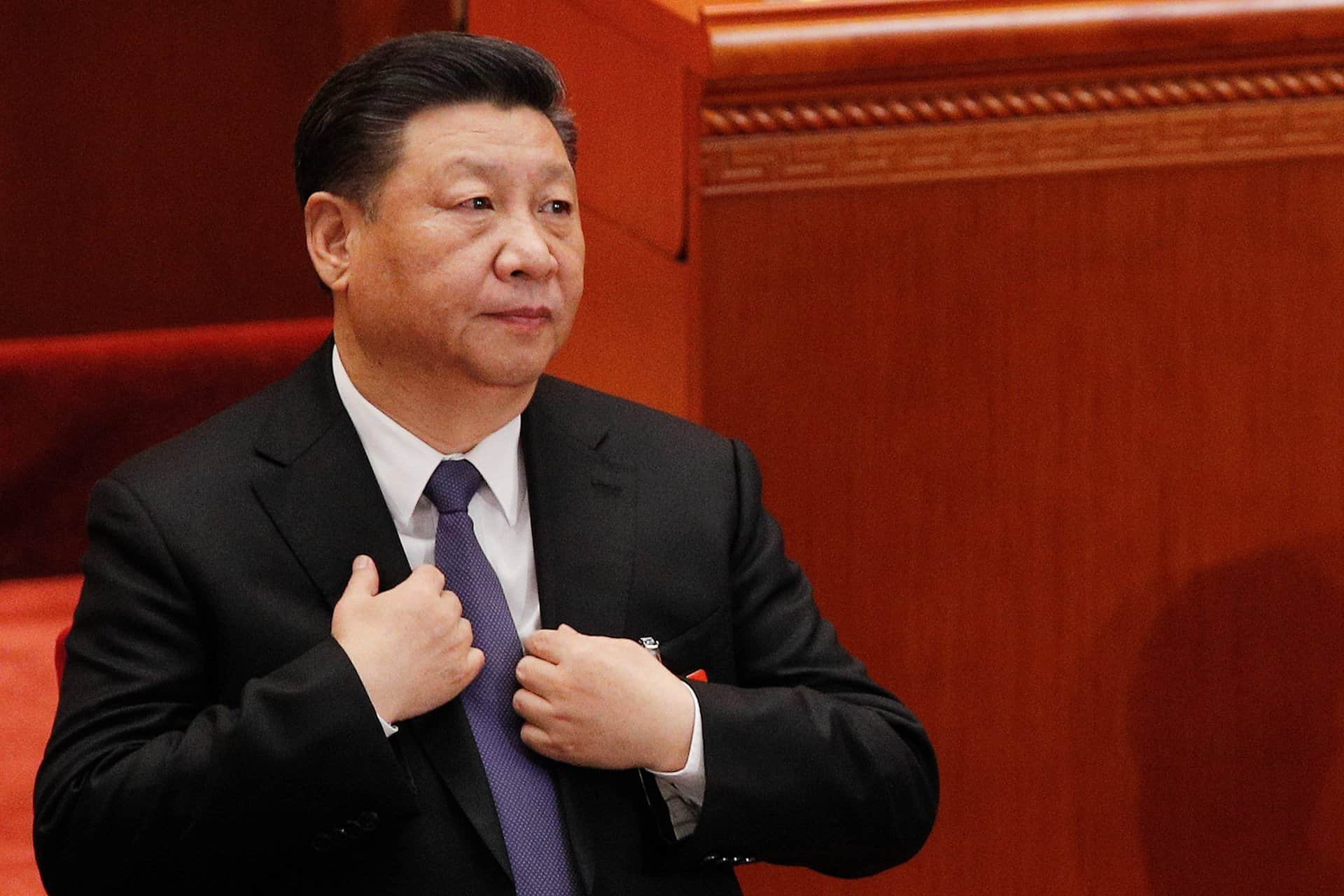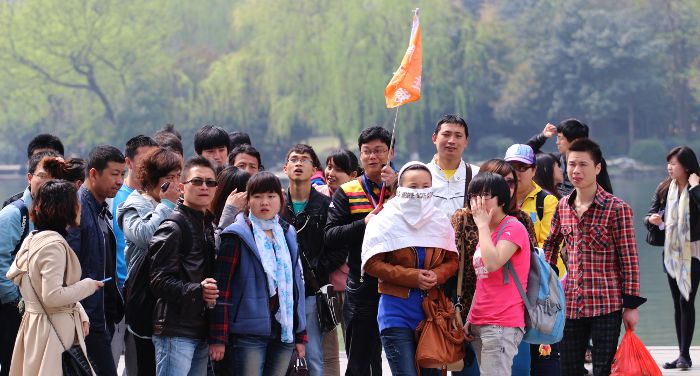New Regulations on Chinese KOL(Influencers)
China fines influencers, the governement is attaking the queen of KOL Weiya, Huang Wei (also known as Viya)
Common prosperity In China
The priority is to “Common prosperity In China”, the wealthy and famous are interested in paying their taxes in the right form. Viya, 36, was sentenced to 1.34 billion yuan (186 millions euros) for tax evasion. After the tax announcement, Viya’s live streaming account (live videos) on Taobao, an e-commerce platform owned by Alibaba, vanished.
Beijing has granted its Internet stars ten more days to become in good standing by 2021. Kuaishou, Douyin and other major online video sites and apps are also being targeted.
The sum of Viya’s fine (Huang Wei civil) gives an indication of the billions of dollars brewed by the major influencers. Teleshopping has dominated online commerce in recent years. It now accounts for about 11.7% of all sales by 2021. This compares to 3.5% in 2019, according to an eMarketer study. Douyin, the Chinese version of TikTok’s platform, and Kuaishou were popular for their new ideas on entertainment and consumption.
KOL are growth drivers in China
Taobao Live was established in 2016 and offers live streaming. KPMG, an audit firm, estimated that live streaming would generate 1 trillion Yuan in sales by 2020. The platforms have welcomed a growth driver in the form of “super KOL” ( key opinion leaders >>): Alibaba has signed deals with Viya and Li Jiaqi, also known as Austin Li, the champions for teleshopping 2.0.
China has a real revolution on the e-Commerce & livestreaming with army of e-Sellers to promotes products online explained a member of the CBC in Paris.

Viya sold an estimated 8.5 billion yuan worth products at her November singles party. These “super KOLs”, who are extremely popular, can offer significant discounts to brands that request them. They also depend on thousands of less-known presenters to promote products on a daily base. Laurent Bili, France’s ambassador to China, made an intervention directly from Viya in July to support French brands and promote French knowhow.
Alibaba will suffer a huge loss due to the call to order of KOLs. The stock exchange lost 5% Monday and Tuesday. Viya was blocked by Alibaba. It would result in a substantial loss of revenue for Taobao Live if it were permanent. The platform’s last year sales were between 20% and 30% for Viya Li and Austin Li.
Read more
Liu Xingliang is an internet and technology industry key thought leader (KOL) who has gained more than 200,000 fans since he entered the short-video/livestream sector – widely viewed as the hottest social media form in recent years. He remains optimistic about China’s bright future, despite tightening regulations that target widespread tax avoidance.
Liu Xingliang stated that “looking deep into the industry you could find some loopholes had existed for a while.” He recalled his experience four to five years ago, when he was advised not to pay personal income tax. This can reach as high as 45 per cent, and instead, to pay the rate of a privately-owned company, which is typically under 6 percent.
Liu said that the rate was tempting but that hidden taxes would soon be exposed. So, he refused to accept the offer immediately.
In Hangzhou, the capital of East China’s Zhejiang Province and home to China’s ecommerce giant Alibaba,
“The China tax authority said Zhu Chenhui and Lin Shanshan illegally filed personal wages as company income, evading more than US $6.5 million in taxes” explained Jing Wang associates a lawyer in China.
Record for China livestreamer Weiya, was fined 1.34 Billion Yuan ($210 M) earlier this month.

Viya avoided 643 million Yuan in taxes and 60 million Yuan of underpayments between 2019-2020 by hiding her personal income and making false tax declarations. source
Viya, also known as the “livestream Queen”, sold goods worth 8.5-billion yuan in a 14-hour livestreaming event on October 20. Viya was hit with such a severe penalty that the whole livestream industry had to change its business practices.
Mogujie.com is one of China’s largest fashion-focused ecommerce services. Recently, it decided to reduce 30 percent of its staff. According to a report from Yicai.com, the technology department had the highest percentage of layoffs, reaching around 80 percent.
Mogujie declared in July 2019 that it would “fully adopt the livestream business”, which contributed more than 90% of the platform’s total gross product volume (GMV) according to its quarterly earnings reports through June 30.
Xueli Cherrie is another top influencer in livestream ecommerce. She is reportedly busy clearing out her inventory via offline channels at a price of 1,000 yuan.
After being slapped in November with a tax evasion penalty, Xueli hasn’t been able to stream again. Shortly afterward, her Taobao shop also closed.
Read more
In China : Top influencers under radar
Brand merchants are the main players in the livestreaming industry. They promote their products and livestreamers. There are also platforms that offer technical support. The livestreaming business model has matured and has proven to be resilient over the years. However, Liu stated that the Viya penalty has shaken the top influencers. They can’t enjoy the wild money-making as well as they used to. He noted that the industry reshuffle would benefit the supply side.
Influencers with high traffic have access to huge amounts of resources, which allows them to squeeze as much space as possible for smaller and medium-sized hosts. This gives them an advantage when negotiating with brands.
Li Jiaqi was the livestream salesman who went head-to-head against Viya. He was one of many influencers, five major platforms and five major platforms summoned Thursday by the Zhejiang Consumers Council to address unregulated practices.
The council reviewed livestream marketing activities on Taobao and JD. It also examined 17 influencers who were present at the Double 11 shopping festival. The probe found that five influencers engaged in exaggerated promotions.
Observing the spotlight on top influencers, it is clear that Chinese consumers who became “addicted”, in some cases, to livestream shopping during pandemics, won’t abandon this new way of buying goods. Instead, they will be more focused on products and will accept less well-known hosts. Industry analysts claim that this will lead to increased acceptance.
Wang Fengqing is a livestreamer selling hanfu (traditional garment of China’s Han ethnic groups) on Kuaishou. He said that the tightening of industry regulation after the tax event for top influencers will not affect small hosts like him.
More than 80,000 followers and that he only sell Hanfu. This is a vertical channel, so my audience seems stable. He believes the livestreaming industry will grow after removing the chaos.
Read more






